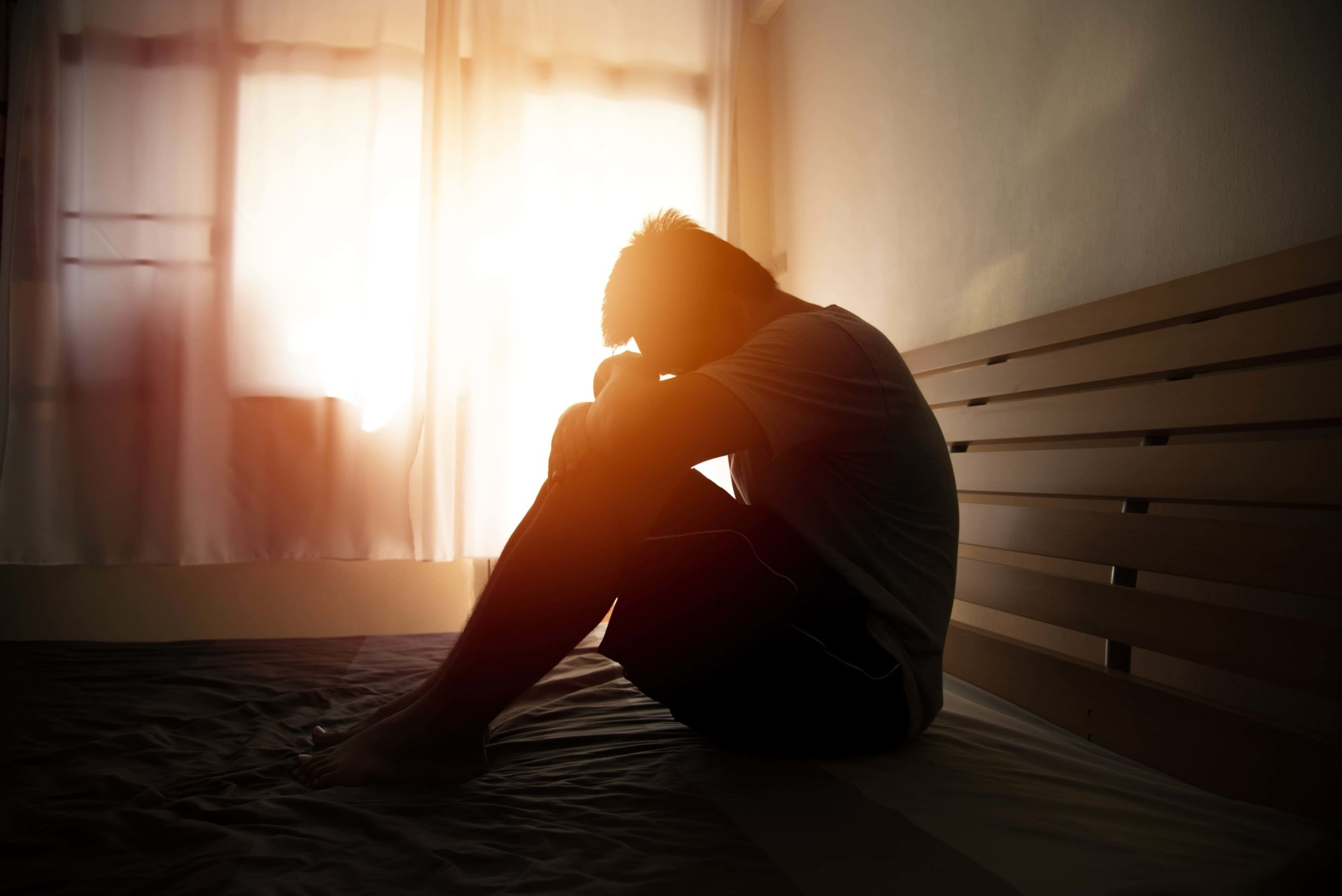Attitudes and laws around the U.S. have been shifting regarding marijuana or cannabis. Because of this, many people may erroneously think that there are no dangers associated with marijuana use. The reality is marijuana is still a drug that can cause dependency and addiction. And anything that someone can become dependent on can also lead to withdrawal symptoms, one of which is depression.
The Centers for Disease Control and Prevention (CDC) report that in 2019, about 18% of Americans have used marijuana at least once. That equals over 48 million people, making marijuana the most used federally illegal drug in the country. Additionally, three out of 10 people who use the drug will develop marijuana use disorder — a condition when someone is unable to stop using marijuana despite the health and social problems it is causing them.
Symptoms of Marijuana Withdrawal
Research is ongoing as to what component of marijuana results in dependency, but initial conclusions point to tetrahydrocannabinol or THC. THC is the plant’s main psychoactive ingredient.
A regular user of marijuana or someone with marijuana use disorder can experience a range of withdrawal symptoms if they discontinue the use of the drug. How severe their symptoms will depend on their health, the amount of marijuana they have been using, and how long they have been using the drug. Symptoms can include:
- diminished appetite
- mood changes
- irritability
- sleep difficulties, including insomnia
- headaches
- loss of focus
- cravings for marijuana
- sweating, including cold sweats
- chills
- increased feelings of depression
- stomach problems
These symptoms are unpleasant, but they are not severe or dangerous.
Links Between Marijuana and Mental Health Conditions
While researchers do not believe that marijuana use causes depression, there is some evidence that some may use it to detach from their feelings of depression. Other studies have found potential links between the drug and several mental health conditions. For instance, cannabis may trigger schizophrenia or psychosis, a detachment from reality, in those already at a higher risk for these mental health conditions.
There has also been some evidence suggesting a correlation between teenage suicide attempts and marijuana usage. The coexistence of marijuana use and depression appears more often than could be expected. More research is needed to determine what is behind these links.
It is also possible that someone will feel an increased sense of depression after they stop using marijuana. This connection is commonly linked to the individual’s increased awareness of the negative consequences of their drug use. It may also stem from their sober acknowledgment of any sadness their drug use was masking. Finally, a person who has been using marijuana for some time may struggle with the idea that they have wasted years of their life on their drug use. It is important to seek professional help to manage these feelings and to guide the person to focus on the positive changes they want to bring about in their life moving forward.
Signs of Marijuana Addiction
Addiction or dependency on marijuana does not result in serious or deadly consequences like overdose, but there are consequences to its use. People who have a problem with marijuana use may display a loss of interest in activities they previously enjoyed. It can also affect a person’s motivation or decision-making,
An individual’s relationships may start to suffer because of their marijuana usage. This mainly happens if those around the person disapprove of the marijuana use. Over time, someone’s tolerance of any drug will increase, requiring them to use more and more to achieve the same effect. This is also true with marijuana. A final sign that someone has developed a dependency or addiction to marijuana is they cannot stop using it, even when they notice the drug’s adverse effects on their life and relationships.
Preventing and Managing Marijuana Withdrawal
Regular users of marijuana may be able to manage their withdrawal symptoms by gradually tapering off and reducing their use of the drug. Once they stop using the drug altogether, they can anticipate a one-to-three-day period of withdrawal symptoms. To help ease any symptoms during this time, a person should:
- Stay hydrated. Drink water and avoid beverages containing caffeine or sugar.
- Eat healthy foods, including fresh fruit, vegetables, and lean protein, and avoid junk food, which can lead to feelings of sluggishness and irritability.
- Exercise every day. Just 30 minutes of exercise each day provides a natural mood boost, and it can help remove toxins via sweat.
- Find support. Surrounding themselves with friends, family members, and others can help the person through any withdrawal symptoms they may experience.
Additional support methods for managing marijuana withdrawal include cognitive behavioral therapy or medication therapy, although neither has been shown to be very effective. Medications that are sometimes used include:
- Dronabinol (a synthetic THC)
- Nabiximols (cannabis in a mucosal spray, so it doesn’t treat withdrawal)
- Gabapentin for anxiety (which has a host of side effects)
- Zolpidem for sleep disturbance (which also has multiple side effects)
Bridges of Hope’s treatment philosophy is based on a comprehensive and integrated approach to addressing all issues related to substance use and mental health disorders. Utilizing therapeutically proven, evidence-based clinical practices, Bridges of Hope provides superior patient care in Indiana through its all-inclusive treatment services.


 Verify Insurance
Verify Insurance
 Toll Free Call
Toll Free Call